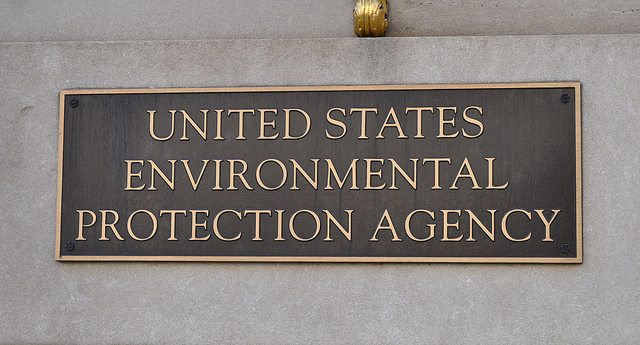There are many ways to get EPA environmental education grant with the rise of environmental education in our community. The changes in climates, disease prevention, sanitation and all other environmental-related issues increase the importance of environmental education higher than ever.
The U.S. government also supports the education effort by providing funding through grants awarded by many of its governmental body, including the EPA or the Environmental Protection Agency. The main duty of the agency itself is to promote and monitor environmental health in various ways.
In this case, the agency supports the environmental education cause by awarding EPA environmental education grant through various programs available focused to address specifically identified area of need. Such as:
- Center for Sustainable Molecular Design grants;
- Children’s Environmental Health and Disease Prevention Research Centers: Formative Centers grants;
- Environmental Impact and Mitigation of Oil Spill grants.
- Innovative Treatment Designs And Technologies Approaches For Mitigating EDCs and Other Chemical Contaminants From Drinking Water and Wastewater Treatment Systems grants;
The EPA grant programs may vary each year. There may be new programs offered every year. Therefore, make sure you check on the agency website at www.epa.gov for more information about EPA environmental education grant this year.
EPA Environmental Education Grant Programs
As to help you get the grant, we will provide several environmental grant programs that may suit your current environmental education project. Here is the brief description of the program as well as where to apply.
The EPA: Brownfields and Land Revitalization
This particular program has an objective to support, funding and resources, the cleanup, assessment and also environmental job training in related to brownfields property. The definition of brownfields itself according to EPA is a “real property, the expansion, redevelopment, or reuse of which may be complicated by the presence or potential presence of a hazardous substance, pollutant, or contaminant.”
In the long run, the activity to clean up and reuse the brownfields is expected to improve the community as well as protects the environment. To apply for the grant you can contact the EPA office at Ariel Rios Building, 1200 Pennsylvania Avenue, NW, Washington, DC 20460. Call them at 202-566-2777 or check on their website at epa.gov.
The STAR grant program from NCER
As an organization funded by the U.S. Environmental Protection Agency, the NCER or the National Center for Environmental Research has the objective to support education and research with the focus on hazardous substances, children’s health, estuarine and coastal monitoring as well as particulate matter. One of the organization programs is the STAR grant. The grant goes to scientists or researcher to get a graduate fellowship in related to the environmental field of research.
EPA: Environmental Education Grants
Last but not least is the EPA environmental education grant program. The program is intended to support projects of environmental education with objectives to help people make the right decision that affects the quality of their environment by enhancing and improving the public’s skills, awareness, and knowledge. The amount of this grant is between $2 and $3 million per year in total.
FAQ About EPA Environmental Education Grant
Here are more popular questions about EPA Environmental Education Grant:
Is EPA Environmental Education Grant Very Competitive?
This grant program is highly competitive, generating significant public interest in developing environmental education projects. The Environmental Protection Agency (EPA) receives a large number of applications for these grants, often exceeding the available funding.
Historically, the success rate for grant applications has been quite low, with the ratio of grant awards to applications ranging from 1 in 10 to 1 in 30. This indicates that only a small fraction of applicants receive funding, underscoring the need for well-prepared and compelling proposals to stand out in the selection process.
How About the Issuance of NOFO for EE Grants?
The issuance of a Notice of Funding Opportunity (NOFO) for Environmental Education (EE) grants is contingent upon budget appropriations. If the program receives approval and funding, a competition is held each year. The EPA also retains the right to make additional awards under the same announcement if extra funding becomes available after the initial selections. Any such additional awards will be made within six months of the original selection decisions. To keep up with the latest information on EPA Environmental Education grants, subscribing to the EE Grants Listserv is recommended.
Is It Possible to Talk to EPA Staff About Potential Grant Ideas?
No, EPA staff are not allowed to discuss potential grant ideas with applicants. They cannot review draft applications, or provide feedback on how to address ranking criteria. They can only answer technical questions related to the current solicitation notice or FAQs. For specific guidance or feedback on your grant project, you should refer to the information provided in the solicitation notice or FAQs.
Whom I Contact if I Want to Ask Any Technical Questions?
If you have technical questions not covered in the current solicitation notice or FAQs, you can email EEgrants@epa.gov for assistance. Additionally, keep an eye on the EE Grants webpage for announcements about webinars and conference calls hosted by EPA’s Office of Environmental Education (OEE). These sessions will offer guidance on writing competitive applications, clarifying points in the solicitation, and addressing commonly asked questions.
What Are the Requirements to Apply Environmental Education (EE) Grant?
Entities eligible to apply for an Environmental Education (EE) Grant include:
- Local Education Agencies: These are school districts or educational institutions within local communities.
- Colleges or Universities: Higher education institutions that offer undergraduate or graduate programs.
- State Education or Environmental Agencies: State-level agencies focused on education or environmental protection.
- Nonprofit Organizations: Organizations described under Section 501(c)(3) of the Internal Revenue Code, dedicated to public or charitable purposes.
- Tribal Organizations: Nonprofit organizations or tribal education agencies that qualify under Section 501(c)(3) and are controlled by an Indian tribe, band, or nation recognized by the U.S. for special programs and services.
- Noncommercial Educational Broadcasting Entities: Entities defined and licensed by the Federal Communications Commission (FCC) as noncommercial educational broadcasters.
Additional Eligibility Considerations:
- Applicant organizations must be based in the United States, U.S. territories. Or, freely associated states such as the Federated States of Micronesia, the Marshall Islands, and the Republic of Palau.
- Eligibility criteria apply to both the primary grant recipient and any subrecipients involved in the project.
Can Students and Teachers Apply for this Grant?
Students and teachers cannot apply for this grant to study environmental education on their own. This grant program does not allow individuals, such as single students or teachers, to receive money directly.
Can Organizations from Canada or Mexico Apply for this Grant?
No, organizations from Canada or Mexico cannot apply for this grant to work on environmental education projects in the United States. To be eligible for this grant, an organization must be based in the United States. Or, one of its territories, or a freely associated state like the Federated States of Micronesia, the Marshall Islands, or the Republic of Palau.
An application might be eligible if the organization applying for the grant is based in the United States or one of its territories. However, the majority of the educational activities in the project must happen either: (a) within the United States, (b) within the United States and Canada or Mexico, or (c) within U.S. Territories.
Can Local and County Government Agencies Apply for A Grant?
Yes, local and county government agencies can apply for a grant. This includes local education agencies and environmental agencies within local or county governments, provided they can prove they have the authority to run education programs.
To demonstrate this authority, they should include documentation. For instance, a statement from the state department of education, or the law or bylaws that created the agency. They can use the agency’s current mission statement, or evidence of previous educational programs. Make sure to include this information clearly in your application’s Work Plan and the Programmatic Capability and Past Performance sections.
Can State Government Agencies Apply for This Grant?
Yes, state government agencies can apply for the grant. However, they must show they have the authority to run environmental education programs. They need to provide proof such as a statement from the state department of education. Or, the law or bylaws that established the agency, the agency’s current mission statement, and evidence of past educational programs. Include this information clearly in the Work Plan and the Programmatic Capability and Past Performance sections of the application.
Can an Organization Apply for 501(c)(3) Status at the Same Time?
Yes, an organization can apply for 501(c)(3) status at the same time it applies for a grant. However, the organization must already have its 501(c)(3) status approved by the IRS to be eligible for the grant. If an organization becomes a finalist but does not have the 501(c)(3) status until the time to get the award, it will not be eligible to receive the grant.
What if My Project Has Activities That Are Not Eligible for Funding?
If your project includes activities that are not eligible for funding, that specific part of the project will not get the money. Additionally, including ineligible activities could make the entire application ineligible for funding. However, if needed, the EPA may contact applicants to clarify any eligibility issues before making a final decision.
References:
- National Center for Environmental Research: STAR grant. epa.gov/ncer/grants/
- Environmental Protection Agency: Brownfield grant. epa.gov/brownfields/grant_info/index.htm
- Environmental Protection Agency: Environmental Education Grants. epa.gov/enviroed/grants.html
- Environmental Protection Agency: Brownsfield Grants. epa.gov/brownfields/
- Images: epaabuse.com, eenewstips.blogspot.com, news.appstate.edu
- https://www.epa.gov/education/frequent-questions-about-environmental-education-grants-program




